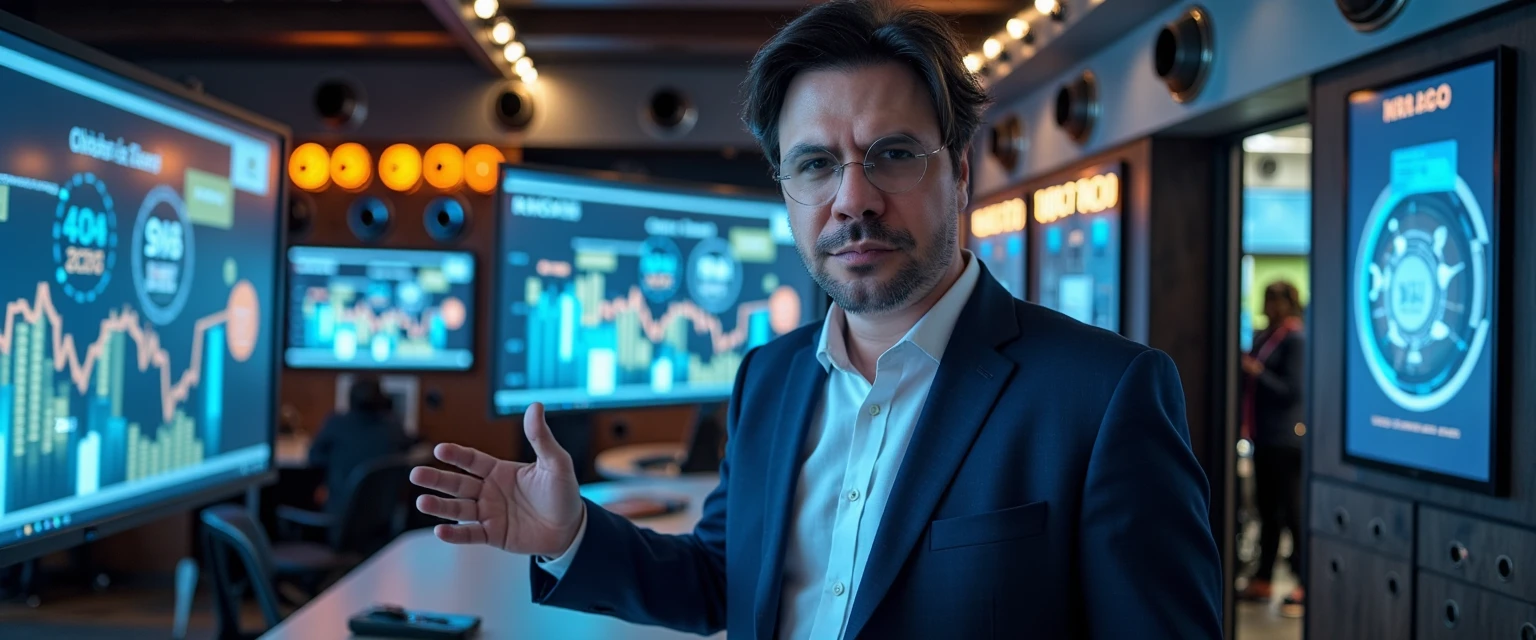The Future of AI in 2025: Between Technological Advances and Ethical Challenges
February 15, 2025 | by Matos AI

The AI Revolution: A 2025 Outlook
As an entrepreneur and technology and innovation expert, I have closely followed the evolution of Artificial Intelligence (AI) over the years. By 2025, we are witnessing an unprecedented revolution in this field, with advances that promise to radically transform our society, economy and way of life. Let’s explore the key developments and their implications.
1. AI Agents and the Replication of Human Personality
One of the most surprising advances is the ability of AI agents to recreate a human personality with 85% accuracy in just two hours. According to researchers at Google and Stanford University, these “simulation agents” can answer questions and participate in social experiments as if they were the real person.
This development raises crucial questions about privacy, identity and ethics. As an entrepreneur, I see fascinating opportunities for applications in areas such as personalized customer service and employee training. However, I also warn about the potential risks of manipulation and misuse of these technologies.
Join my WhatsApp groups! Daily updates with the most relevant news in the AI world and a vibrant community!
- AI for Business: focused on business and strategy.
- AI Builders: with a more technical and hands-on approach.
2. Deepfakes and the Threat to Reality
The recent case involving Scarlett Johansson and an unauthorized deepfake video illustrates the dangers of malicious AI. The actress warned about the misuse of technology to multiply hate speech and manipulate the perception of reality.
As a leader in the startup ecosystem, I have encouraged entrepreneurs to develop solutions to detect and combat deepfakes, in addition to promoting digital education so that people can identify manipulated content.
3. AI in the Job Market: Ally or Threat?
Contrary to initial fears, AI is proving to be more of an ally than a threat to jobs. Cíntia Scovine Barcelos, Bradesco’s Chief Technology Officer, says there are more job openings than qualified professionals in the sector.
In my experience as a startup mentor, I have observed that the companies that adapt best are those that integrate AI into their processes, increasing productivity and creating new job opportunities. The key is in constantly updating and developing skills that complement AI.
4. LatamGPT: Latin America at the Forefront of AI
One exciting development is LatamGPT, a Latin America-specific AI model set to launch in 2025. This initiative demonstrates the importance of developing AI solutions that reflect our cultural and linguistic diversity.
As an advocate for regional innovation, I see LatamGPT as a unique opportunity for Latin American startups and companies to compete globally, offering solutions that are more relevant to our context.
5. AI Regulation: A Global Challenge
AI regulation has become a global priority, with different approaches emerging in the US, the European Union and China. Brazil, as an important player in this scenario, needs to define its position.
In my role as a consultant and speaker, I have emphasized the importance of balanced regulation that protects individual rights without stifling innovation. It is crucial that entrepreneurs and policymakers work together to create an environment conducive to the ethical development of AI.
6. The Impact of AI on Human Cognition
A recent study by Microsoft and Carnegie Mellon University raises concerns about how over-reliance on AI could affect our ability to think critically. It’s an important reminder that we should strike a balance between using technology and developing our cognitive skills.
In my mentoring programs, I have encouraged entrepreneurs to use AI as a tool to support, not as a replacement for, human thinking. The competitive advantage will increasingly lie in the skills that AI cannot replicate, such as creativity, empathy, and strategic thinking.
Conclusion: Preparing for the Future of AI
The AI landscape of 2025 is one of immense potential, but also of great challenges. As entrepreneurs, innovators, and citizens, we have a responsibility to shape this future in an ethical and inclusive way.
In my courses and consultancies, I emphasize the importance of a holistic approach to AI adoption. This includes not only technical expertise, but also understanding the ethical, social, and economic implications of this technology.
I invite you to reflect on how we can harness the potential of AI to create a more prosperous and equitable future. If you are looking for guidance on how to integrate AI into your business or career in an ethical and efficient way, I would be happy to help. Contact me to learn more about my mentoring and consulting programs in innovation and technology.
Together, we can ensure that the AI revolution benefits everyone, promoting responsible innovation and sustainable growth.
✨Did you like it? You can sign up to receive 10K Digital's newsletters in your email, curated by me, with the best content about AI and business.
➡️ Join the 10K Community here
RELATED POSTS
View all



